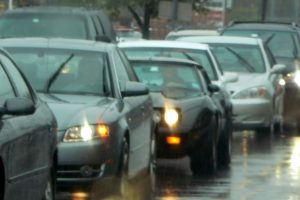New York State labor review board has made a move that could shake up the gig economy forever. The board of regulators recently ruled that three former Uber drivers qualify for unemployment insurance, a decision which first requires that the drivers be considered employees in the first place. According to a report from Forbes, the ruling would apply to all “similarly situated” workers, and the board ordered the company pay unemployment insurance benefits on behalf of the drivers.
of regulators recently ruled that three former Uber drivers qualify for unemployment insurance, a decision which first requires that the drivers be considered employees in the first place. According to a report from Forbes, the ruling would apply to all “similarly situated” workers, and the board ordered the company pay unemployment insurance benefits on behalf of the drivers.
Gig economy jobs have become popular in recent years, with companies like Uber, Lyft, Grubhub, and a myriad of other delivery and driving services taking the reins and reshaping the economy. Those desperate for a way to make ends meet that also allows for flexibility around an already packed work and family schedule have given these companies a robust labor force. Others who cannot find stable full-time work have thrown themselves into long days and nights trying to earn enough for a full-time wage. Their desperation, along with contractor loopholes, have created a sub-economy where workers are being stripped of many of the protections others enjoy. Turbo Tax-owner Intuit estimated last year that 34 percent of the American workforce is working in the gig economy, with many this year estimating the number to be closer to 40 percent. Continue Reading ›
 Orange County Employment Lawyers Blog
Orange County Employment Lawyers Blog


